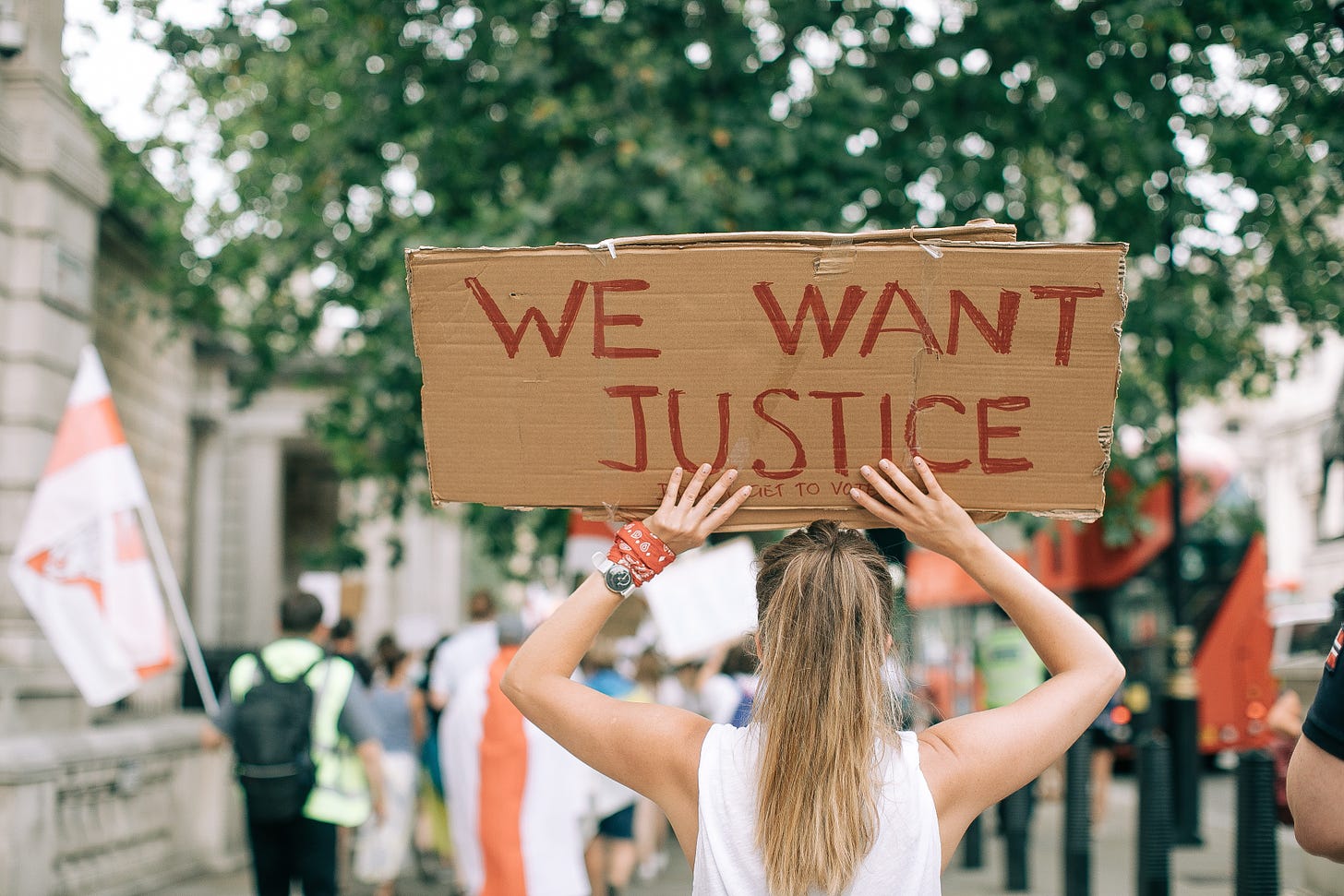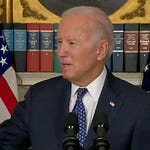James Fallows, former speechwriter for President Jimmy Carter and staff writer at The Atlantic, lays out a plan
Welcome to The Signorile Report, where you’ll read hard-hitting political commentary and exposés, hear interesting conversations, join in great discussions and get lots of other stuff.
Last week I interviewed James Fallows, who’d spoken with many people over a period of a few months who’d been involved in or studied previous investigations of presidents, for a piece he wrote on how Joe Biden should investigate Donald Trump.
As he noted to me, “there’s never been anything quite like this,” even as many presidents have previously been investigated for wrong-doing. Trump is in a league of his own. And it will take a lot of work to investigate him.
Fallows explained that, “when a new president takes office there is just this enormous onrush of all the normal stuff a president has to do.” And with the Biden administration, it’s going to be even more intense as President Joe Biden, Vice President Kamala Harris and their team deal with challenges greater than most presidents, including “economic catastrophe, the pandemic, international relations.”
Fallows laid out several tiers to investigating Trump.
1) Tier one is “straight out corruption,” which would include the violations regarding Donald Trump and his family and their businesses, and Fallows said many experts concluded “the judgement on these corruption issues is [that] most of them you leave to the states.”
Those that do involve federal law, like the postal service, “you make sure you have a good, eminent attorney general who makes sure you have have good inspectors’ general” at the various government agencies.
Tier 1 is: “let the process work at the state level and within the departments.”
2) Tier 2 is what Fallows identifies as “corrosion issues.” These are issues in which “the government has been eroded.” He notes that, “we’ve seen this in public health, the State Department, the [National] Weather Service” and many other areas. “This is something the president can deal with,” he said, because, of the 4000 political appointees the president will make, “about 3000 will not get Senate confirmation.” These are people a president can bring in who may have more expansive ideas and can move quickly and don’t need a Senate confirmation which might block them from being appointed because of their backgrounds or perceived intentions in doing their jobs.
3) Tier 3 includes “three big areas where you want to have national commissions.”
Commissions have often been viewed skeptically, particularly because they’ve been used by some administrations to just kick something down the road. But when used with good intentions, Fallows noted, “commissions have been effective tools.”
In 1968, he pointed out, the Kerner Commission was important in taking on racial injustice. The Space Shuttle Commission, he noted, is another effective example. And he viewed the 9/11 Commission as having done a “surprisingly impressive job.”
Commissions that are run not by the federal government but rather through universities and other institutions have had major impact, he said. The three commissions would look at, respectively, the coronavirus pandemic, the human rights abuses at the border, and “attacks on democracy itself.’
“These warrant special treatment,” he said. “There’s leverage in each of them.” Regarding the coronavirus pandemic, for example, “there’s what happened, and the certainty that new viruses from new parts of the world will emerge. What have we learned and how can this not happen again?”
For the border and the abuses of immigrants, Fallows noted that John Allen, the retired four star general who is now president of the Brookings Institution, told him the rest of the world views us a state-sponsor of child abuse, so it’s also about America’s standing in the world. That commission needs to look at what went wrong. What brought this country to violate human rights in a such a horrific way and allowed for separating children from their parents and putting them in cages?
And the commission on attacks on democracy would look at “the structure of democracy” and what led to white supremacist violence and domestic terrorism.
I liked the way Fallows laid this all out, and I had questions particularly about how we make sure abuse like this never happens again.
Regarding what to do about preventing any president from doing the things Trump did, we discussed how much of what Trump did violated norms that presidents in the past knew to follow and not cross, and whether we need new laws limiting the president’s power. Fallows interestingly noted that he asked historians and others, and “[they] generally concluded that norms can’t be codified.”
“You need to demonstrate them,” he said. “The exemplifying of standards. But in this third commission there are a number of people with ideas in mind of how you would reduce gerrymandering, have fixed terms for the Supreme Court justices, things you would practically do to restore norms.” Personally, I think there are laws thqt need to be passed to limit the president’s power after Trump, because we don’t know what the GOP will do next. What other authoritarian might they get behind and help elect president, and what if they nominate Trump again in 2024 and he gets elected?
We also discussed how President Obama, even after making promises during the 2008 campaign, didn’t investigate George W. Bush’s actions in the Iraq War nor investigate big banks after the mortgage crisis and economic collapse in 2008. Fallows believes that was a mistake, and on that we certainly agree.
He believes Biden and his team will be different, pointing out that Biden saw it all under Obama and, and for that reason, will be inclined to make sure he doesn’t let it happen again. He also pointed to how Biden has nominated people to his Cabinet who seem like they will take on the challenge of investigating Trump. (You can of course listen to the full interview here.)
Let me know your thoughts.















How Trump should be investigated